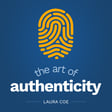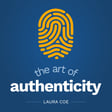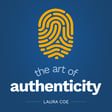
B. Jeffery Madoff: Creative Careers: How to Make a Living with Your Ideas
B. Jeffrey Madoff is a director, photographer, writer, and professor in New York City. He joins us to talk about his new book Creative Careers, How to Make Living with Your Ideas.
He is the founder and CEO of Madoff Productions, a film production company that creates award-winning branded content. Madoff is a sought after speaker and has lectured at NYU Steinhardt, F.I.T., Google Next, Wharton School, NC State & SXSW in Brazil, Verizon and Barclay’s RISE. In addition to his film and public speaking engagements, Madoff's articles are widely distributed and have appeared online in Huffington Post and other major publications. He has written and is the Executive Producer of a play about Rock and Roll Hall of Fame Legend Lloyd Price which premiers in May of 2021 at People’s Light Theater.
Madoff has been a featured speaker at Wharton School, NYU Steinhardt, North Carolina State, SXSW Brazil, Vision Summit, Rise: Barclay's Bank Accelerator, XRB Labs, Mastermind Group, Google Next and many others.


